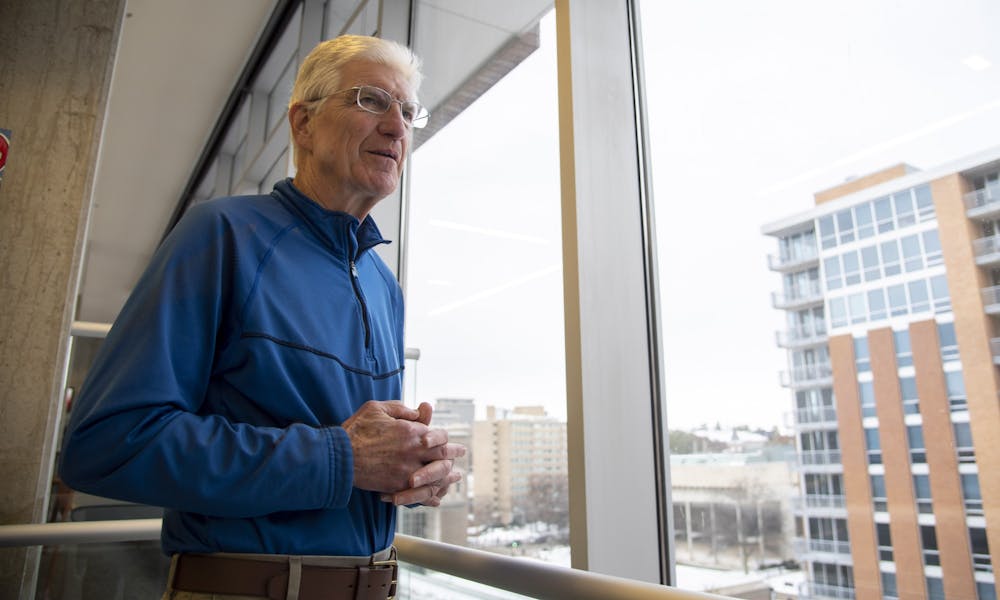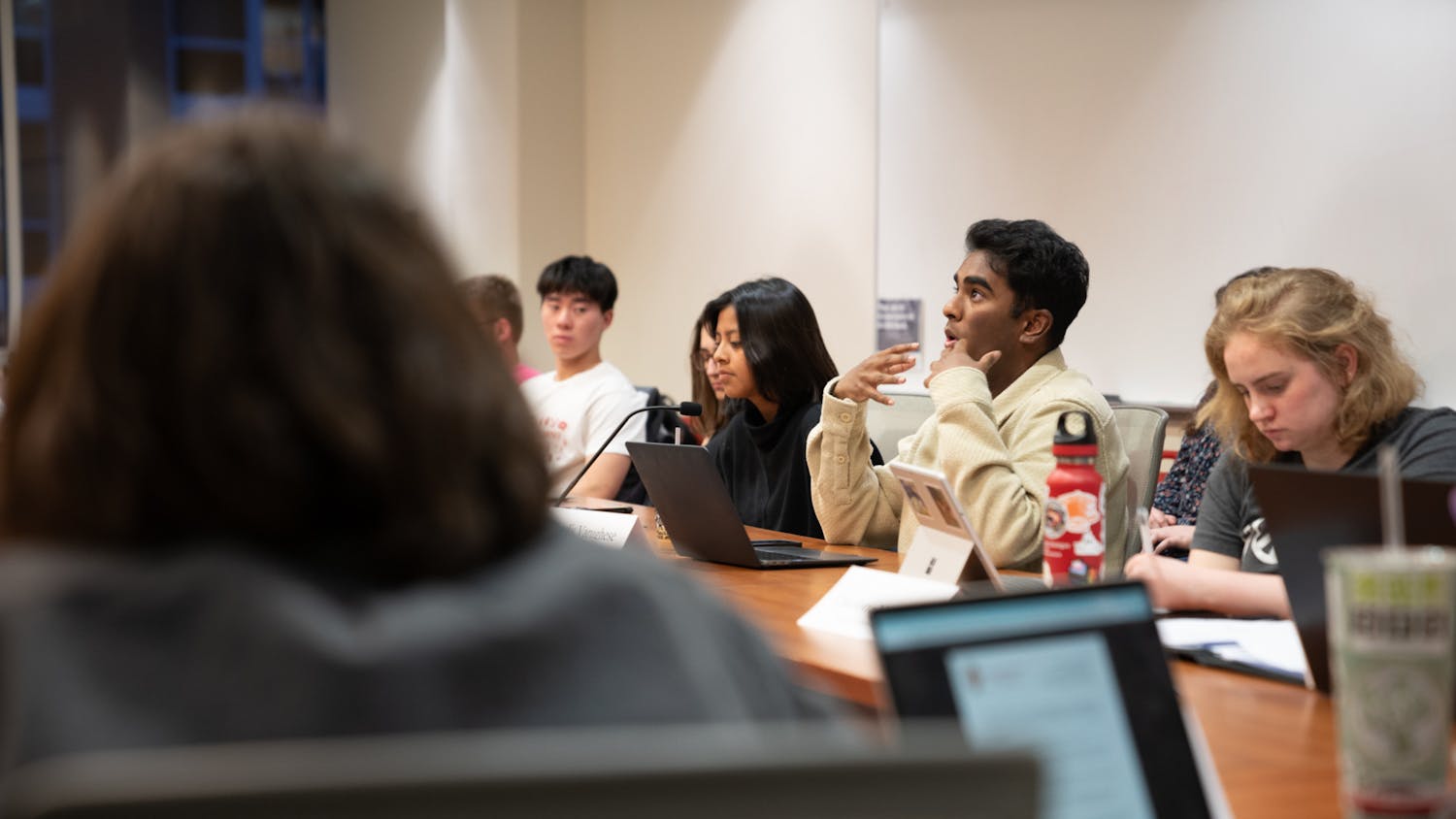University Health Services has grappled with a growing mental health problem derived from decreased stigma and increased symptomatology — despite consistently high rankings from the Princeton Review.
Earlier this year, students and faculty alike packed a room in the student activity center to discuss their relationship with mental health.
That night, 17 students spoke candidly at a Student Services Finance Committee meeting regarding their experiences navigating the often difficult web of mental health services, kickstarting a push for increased and more thoughtful treatment on campus.
“From a student perspective, the first thing that people are going to think of is UHS,” Associated Students of Madison Chair Laura Downer said. “Even if it's not the place that they end up going, it is where their mind goes first.”
One result of UHS being a main concern for students is an increased burden on the university healthcare system. In 2017, UHS moved to a phone model consisting of 20 minute “access consultations” in order to more rapidly meet the increase in student need. As of Nov. 18, the next available phone access consultation for a student would be Dec. 9.
With UHS facing new and modern restraints, Interim Director of Mental Health Services Andrea Lawson is one of the many individuals on campus working to meet the demands of students, including a concerted effort to extend services into underserved student demographics.
Mental health policy on campus is heavily backed by the 2016 Healthy Minds Report.The report makes clear students of color and members of the LGBTQ+ communities struggle disproportionately with mental health than other folx on campus.
Lawson believes solving this issue and others comes both from hiring professionals with similar lived experiences and identities alongside partnerships across the university.
“Part of what we've done related to those partnerships is also hired people to focus on serving students who utilize those spaces and hold those identities,” Lawson said. “So we have hired people with LGBTQ focus and students of color focus particularly, so that we can build up our capacity to meet the needs of students who hold those identities.”
For Lawson, combining proper care for students with administrative responsibility to other organizations is key to creating a better mental health environment.
“By far we're the largest server of students related to mental health concerns on campus,” Lawson said. “To me, that doesn't mean that we own the pie or we own most of it. It's more that we are providing a lot of services and we want to partner with other unique agencies on campus that can provide additional services or provide support in ways that aren't clinical care.”
One of the communities Lawson notes as being crucial to addressing student needs is University Housing.
First-year students utilize UHS’ services the least of any class, according to Lawson. Maneuvering the many services available to students can be difficult for a student in a new environment when they may be in particular need of help.
“The stress of first-year in college is way up there,” UHS Psychologist Emeritus Bob McGrath said. McGrath cites a lack of connection as part of the equation in increased cases of depression and anxiety among college-aged students deriving from technology use.

Bob McGrath sees a change in student need over time.
Partnering with pillars of the freshmen experience is a core element of UHS’ approach.
Erin Strange works directly with first-year students and sees the importance of a cross-campus partnership in aiding a student’s success.
Strange described a theoretical situation of a house fellow relaying information of a chronically depressed student to her.
“I'm going to reach out to that student, invite them to come in and explain the ways in which I can support them by helping them find resources on campus … and then hand that person off as gently as possible to those services that maybe they're interested in obtaining,” Strange said.
UHS is piloting their Let’s Talk programs within residence halls next spring. Lawson believes coming to where students are is important to addressing wellbeing early on.
“We've been talking with housing for a while trying to figure out what type of services would best match what their needs are, and really show up in ways that are meaningful to students,” Lawson said. “We don’t want to have a counselor there 24/7. That’s not helpful either to the students and their developmental path or to the counselor who needs to sleep and have a life.”
Identifying what is helpful and what is not, currently rests heavily on UHS. Decentralized services across campus in conjunction with an absence of a regulatory body was part of the reason for the creation of the Mental Health Task Force and subsequent report earlier this year.
Comprised of 17 individuals across campus with a stake in bettering students’ mental health, their report released earlier this year recommends increased communication and collaboration across services, clinical and training services and continuing student needs assessments.
Downer, a member of the task force, expressed concern over the task force’s discontinuation this semester.
“I think it's unfortunate that one of the takeaways from the task force was that we need to be more centralized like less decentralized, less silo and how we tackle this,” Downer said. “By losing the Mental Health Task Force I think we're losing an important piece of the centralization of the issue.”
The 2019 Healthy Minds Survey, slated for release this fall, has not been made available as of yet. If patterns remain, however there is a high change the report could create substantive, data-driven change for student well-being on campus.






